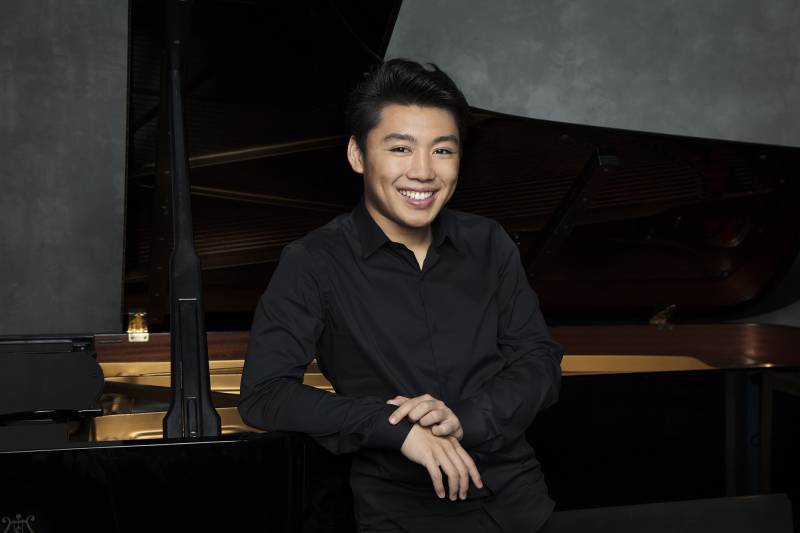One might presume that having rare abilities leads to inevitable success in classical music, but that’s not always the case. As the music critic Harold Schonberg sagaciously wrote in 1992, “Not all prodigies develop into great performing artists, but on the other hand one cannot become a great performing artist without having been a prodigy.”
If the United States has produced any homegrown piano prodigy of note in recent memory, George Li of Massachusetts would appear to fit that bill.
On Aug. 6 at San Francisco’s Davies Symphony Hall, Li, 25, performs Mozart’s Piano Concerto No. 24 in C Minor, K. 491 with conductor Xian Zhang and the San Francisco Symphony. The program, which gets an encore Aug. 7 at Stanford University’s Frost Amphitheater, also includes William Grant Still’s Mother and Child and Mozart’s Symphony No. 39, K. 543.
Li’s musical history has no shortage of stupefying anecdotes. At age 7, he was navigating the most treacherous of Chopin Etudes, the barometer of modern, virtuosic piano playing. By 11, there was an appearance on The Martha Stewart Show. And four years after that, the White House called, and Li refined his talents before an audience of President Barack Obama and German Chancellor Angela Merkel.
“It’s funny. People tell me, ‘I used to watch your YouTube videos!’ But I never really saw myself as a prodigy,” Li says. “My parents kept telling me to keep working, that without diligence and hard work, there’s only so far talent can get you. And thankfully, I took that to heart. I was privileged to have great people, great teachers around me, and with my passion, was able to enter an environment where I could grow my mind as well.”


